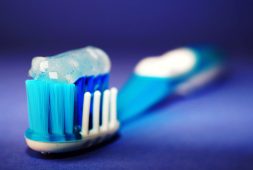Groundbreaking Study Shows Good Cardiovascular Habits Can Knock 6 Years Off Your Biological Age

A recent study conducted by the team at Columbia University Irving Medical Center in New York City reveals that maintaining good cardiovascular health can potentially subtract six years from your biological age.
The researchers investigated the effectiveness of adhering to the American Heart Association’s Essential 8 checklist in promoting heart health.
The safeguard the heart and blood vessels, crucial components linked to various diseases, it is recommended to embrace the Essential 8 habits: ensuring healthy sleep, abstaining from smoking, engaging in regular physical activity, maintaining a healthy diet, managing a healthy body weight, and monitoring healthy levels of blood glucose, cholesterol, and blood pressure.
The research, presented at the American Heart Association’s Scientific Sessions 2023 in Philadelphia, involved a comprehensive examination of 6,500 adults from diverse backgrounds.
The findings suggest that consistently following the Life’s Essential 8 habits could significantly prolong life and mitigate the risk of cardiovascular and other age-related ailments.
On average, participants with the highest Life’s Essential 8 score appeared to be biologically six years younger than their actual age. The results indicated a reciprocal relationship, where individuals with poor cardiovascular health demonstrated accelerated aging.
Study senior author Dr. Nour Makarem said, “Reduced biologic aging is not just associated with lower risk of chronic disease such as heart disease, it is also associated with longer life and lower risk of death.”
“We found that higher cardiovascular health is associated with decelerated biological aging, as measured by phenotypic (biological) age. We also found a dose-dependent association – as heart health goes up, biological aging goes down,” she said.
“Greater adherence to all Life’s Essential 8 metrics and improving your cardiovascular health can slow down your body’s aging process and have a lot of benefits down the line,” Dr. Makarem adds.
Participants with high cardiovascular health, with an average actual age of 41, exhibited a biological age of 36. Conversely, those with low cardiovascular health, averaging an actual age of 53, displayed a biological age of 57.
This conclusion was drawn by considering participants’ actual age alongside the results of nine blood markers assessing metabolism, inflammation, and organ function.
Former president of the American Heart Association, Dr. Donald Lloyd-Jones, commented, “These findings enhance our comprehension of the connection between chronological age and biological age and underscore how adhering to healthy lifestyle habits can contribute to a longer life.”
Ongoing research will delve further into understanding the long-term impact of cardiovascular health on the aging process.
A recent study conducted by the team at Columbia University Irving Medical Center in New York City reveals that maintaining good cardiovascular health can potentially subtract six years from your biological age.
The researchers investigated the effectiveness of adhering to the American Heart Association’s Essential 8 checklist in promoting heart health.
The safeguard the heart and blood vessels, crucial components linked to various diseases, it is recommended to embrace the Essential 8 habits: ensuring healthy sleep, abstaining from smoking, engaging in regular physical activity, maintaining a healthy diet, managing a healthy body weight, and monitoring healthy levels of blood glucose, cholesterol, and blood pressure.
The research, presented at the American Heart Association’s Scientific Sessions 2023 in Philadelphia, involved a comprehensive examination of 6,500 adults from diverse backgrounds.
The findings suggest that consistently following the Life’s Essential 8 habits could significantly prolong life and mitigate the risk of cardiovascular and other age-related ailments.
On average, participants with the highest Life’s Essential 8 score appeared to be biologically six years younger than their actual age. The results indicated a reciprocal relationship, where individuals with poor cardiovascular health demonstrated accelerated aging.
Study senior author Dr. Nour Makarem said, “Reduced biologic aging is not just associated with lower risk of chronic disease such as heart disease, it is also associated with longer life and lower risk of death.”
“We found that higher cardiovascular health is associated with decelerated biological aging, as measured by phenotypic (biological) age. We also found a dose-dependent association – as heart health goes up, biological aging goes down,” she said.
“Greater adherence to all Life’s Essential 8 metrics and improving your cardiovascular health can slow down your body’s aging process and have a lot of benefits down the line,” Dr. Makarem adds.
Participants with high cardiovascular health, with an average actual age of 41, exhibited a biological age of 36. Conversely, those with low cardiovascular health, averaging an actual age of 53, displayed a biological age of 57.
This conclusion was drawn by considering participants’ actual age alongside the results of nine blood markers assessing metabolism, inflammation, and organ function.
Former president of the American Heart Association, Dr. Donald Lloyd-Jones, commented, “These findings enhance our comprehension of the connection between chronological age and biological age and underscore how adhering to healthy lifestyle habits can contribute to a longer life.”
Ongoing research will delve further into understanding the long-term impact of cardiovascular health on the aging process.
He adds, “Everyone wants to live longer, yet more importantly, we want to live healthier longer so we can really enjoy and have good quality of life for( as many years as possible.”



